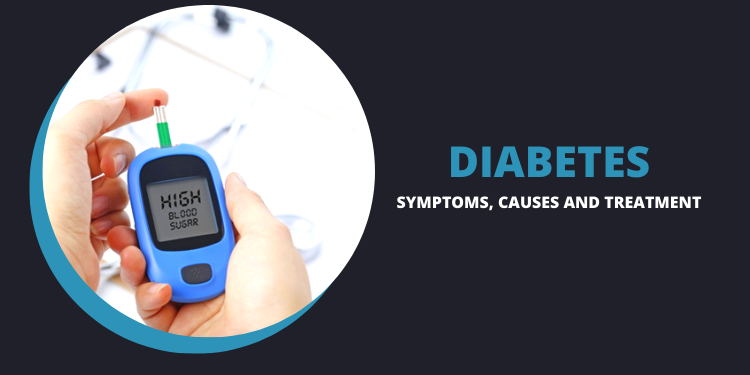Today, we will discuss the risk, early signs, causes, and complications of diabetes.
Do you know if you have diabetes or not? The majority of the early symptoms are brought on by glucose levels in the blood that are higher than usual. Glucose is a kind of sugar.
There are times when the warning flags are so subtle that you don’t even see them. This is especially the case for those who have type 2 diabetes. Some people don’t discover they have it until they start having issues due to the disease’s long-term effects on their bodies.
The symptoms of type 1 diabetes typically manifest themselves suddenly, within a matter of days or a few weeks at the most. They are also far more severe.
Let’s discover more!
Table of contents
- Who Is At Risk of Developing Diabetes? What Are The Elements That Put You At Risk?
- What Are Diabetes Causes
- What Are Diabetes Early Signs & Symptoms?
- What Are Diabetic Complications?
- Frequently Asked Questions
- What are the effects of diabetes on your heart, eyes, feet, nerves, and kidneys?
- What causes diabetes to result in amputation?
- Is diabetes capable of causing blindness?
- Is diabetes a factor in hearing loss?
- Is it possible that diabetes causes headaches or dizziness?
- Is hair loss caused by diabetes?
- Is it possible to be born with diabetes? Is it hereditary?
Estimated reading time: 10 minutes
Who Is At Risk of Developing Diabetes? What Are The Elements That Put You At Risk?
The factors that raise your risk vary depending on which form of diabetes you get.
Risk Factor For Diabetes Type 1
- Having a family history of Type 1 diabetes (parent or sibling) is a risk factor for the disease.
- Pancreatitis is a condition in which the pancreas is injured (such as by infection, tumor, surgery or accident).
- Autoantibodies (antibodies that mistakenly attack your own tissues or organs) are present.
- Stress on the body (such as surgery or illness).
- Viruses can cause illness if you are exposed to them.
Risk Factors for Prediabetes & Type 2 Diabetes
- Prediabetes or Type 2 diabetes in the family (parent or sibling).
- Being overweight is a problem.
- High blood pressure is a condition in which one’s blood pressure is abnormally high.
- Having a high triglyceride level and a low HDL cholesterol (the “good” cholesterol).
- Inactivity in the physical sense.
- Being 45 years old or older.
- Having gestational diabetes or having a kid who weighs more than 9 pounds.
- Polycystic ovarian syndrome (PCOS).
- Having had a heart attack or stroke in the past.
- Being a cigarette smoker.
Risk factors for Gestational Diabetes
- Prediabetes or Type 2 diabetes in the family (parent or sibling).
- Being overweight before to conception.
- Being over the age of 25.

What Are Diabetes Causes
Having too much glucose circulating in your bloodstream is the cause of diabetes, regardless of the type. The explanation for your elevated blood glucose levels, however, varies depending on the type of diabetes you have.
Type 1 Diabetes
This is a condition that affects the immune system. Insulin-producing cells in your pancreas are attacked and destroyed by your body. Glucose builds up in your bloodstream if you don’t have enough insulin to let glucose into your cells. In some patients, genes may also play a role. A virus can also cause an immune system attack.
Type 2 Diabetes and Prediabetes
Insulin does not function properly in your body’s cells, preventing glucose from entering them. Insulin resistance has developed in your body’s cells. Your pancreas can’t keep up with the demand for insulin and can’t produce enough to overcome the resistance. Glucose levels in the bloodstream grow.
Gestational Diabetes
During pregnancy, hormones generated by the placenta make your body’s cells more resistant to insulin. Your pancreas is unable to produce sufficient insulin to overcome this resistance. There is an excessive amount of glucose in your bloodstream.
What Are Diabetes Early Signs & Symptoms?
- Increased thirst is one of the signs of diabetes.
- I’m feeling weak and exhausted.
- Vision is hazy.
- Hands and feet are numb or tingling.
- Sores or cuts that take a long time to heal.
- Unintentional weight loss.
- Urination on a regular basis.
- Infections that don’t seem to go away.
- You have a dry mouth.
Other Signs & Symptoms
- In females:
Skin that is dry and itchy, as well as yeast infections or urinary tract infections, are common.
- In Males:
Erectile dysfunction, diminished muscle strength, and decreased sex drive are all symptoms of erectile dysfunction.
Type 1 Diabetes Early Signs
Symptoms can appear suddenly, over the course of a few weeks or months. It first appears whether you’re a youngster, a teen, or a young adult. Nausea, vomiting, or stomach pains, as well as yeast infections or urinary tract infections, are other symptoms.
Type 2 Diabetes & Prediabetes Early Symptoms
You may not have any symptoms at all or may not notice them since they develop slowly over several years. Usually begin to develop when you’re an adult, but prediabetes and Type 2 diabetes is on the rise in all age groups.
Early Signs of Gestational Diabetes
Usually undetectable. Between 24 and 28 weeks of pregnancy, your obstetrician will test you for gestational diabetes.

What Are Diabetic Complications?
Your body’s tissues and organs can be badly damaged if your blood glucose level remains high for an extended length of time. Over time, some issues can become life-threatening.
Some of the Complications:
- Coronary artery disease, chest pain, heart attack, stroke, high blood pressure, high cholesterol, and atherosclerosis (artery constriction) are all examples of cardiovascular disorders.
- Nerve injury (neuropathy) produces numbness and tingling in the toes and fingers, which eventually spreads.
Nephropathy is kidney deterioration that can lead to renal failure, dialysis, or transplantation. - Cataracts and glaucoma are examples of eye deterioration (retinopathy) that can lead to blindness.
- Nerve damage, poor blood flow, and slow healing of cuts and sores are all examples of foot damage.
- Infections of the skin
- Erectile dysfunction is a condition that affects men.
- Hearing loss is a common problem.
- Depression.
- Dementia.
- Dental issues.
Complications of Gestational Diabetes:
- In the mother:
Preeclampsia (high blood pressure, protein in the urine, leg/foot swelling), risk of gestational diabetes in subsequent pregnancies, and risk of diabetes later in life
- In the infant:
The birth weight is higher than normal, low blood sugar (hypoglycemia), and an increased chance of acquiring Type 2 diabetes over time, as well as death soon after birth.
Read More:
Frequently Asked Questions
What are the effects of diabetes on your heart, eyes, feet, nerves, and kidneys?
Blood vessels can be found in all of the tissues and organs of our body. They encircle our body’s cells, transporting oxygen, nutrients, and other substances utilizing blood as the medium of exchange. Diabetes prevents glucose (the body’s fuel) from entering cells and destroys blood arteries in and around these organs, as well as those that nourish neurons.
Organs, nerves, and tissues can start to fail if they don’t obtain the nutrients they require to function properly. The term “proper function” refers to the health of your heart’s blood vessels, particularly arteries (narrowed or blocked). This means that waste items can be filtered out of your blood by your kidneys.
This signifies that the blood vessels in your retina (the part of your eye that gives you vision) are unharmed. This indicates that your nerves are being nourished and that blood is flowing to your feet. Diabetes damages the body and stops it from functioning properly.
What causes diabetes to result in amputation?
Poor blood flow can result from uncontrolled diabetes (poor circulation). Without oxygen and nutrients (which are provided by blood), you are more likely to develop cuts and sores, which can lead to infections that are difficult to heal. Poor blood flow is more likely to affect areas of your body that are farthest away from your heart (the blood pump).
If an infection develops and healing is inadequate, parts of your body such as your toes, foot, legs, and fingers are more likely to be amputated.
Is diabetes capable of causing blindness?
YES. Blindness can result from uncontrolled diabetes, which damages the blood vessels in the retina. If you haven’t been diagnosed with diabetes but are having trouble seeing it, consult your primary care provider or an ophthalmologist as soon as possible.
Is diabetes a factor in hearing loss?
Although scientists do not have definitive answers, there appears to be a link between hearing loss and diabetes. According to the American Diabetes Association, hearing loss is twice as likely in persons with diabetes as it is in people without diabetes, according to a recent study.
Furthermore, persons with prediabetes had a 30% higher likelihood of hearing loss than those with normal blood glucose levels. Scientists believe diabetes harms inner ear blood vessels, but further research is needed.

Is it possible that diabetes causes headaches or dizziness?
YES, if your blood glucose level is too low – usually below 70 mg/dL – you can get headaches or dizziness. Hypoglycemia is the name for this condition. This page discusses the other symptoms that hypoglycemia can induce.
Hypoglycemia is frequent in persons with Type 1 diabetes, and it can also happen in people with Type 2 diabetes who use insulin (insulin helps glucose move out of the bloodstream and into cells) or drugs like sulfonylureas.
Is hair loss caused by diabetes?
Hair loss can occur as a result of diabetes. Uncontrolled diabetes can result in blood glucose levels that are consistently high. This causes blood vessel damage and reduced flow, preventing oxygen and nutrients from reaching the cells that require them, including hair follicles.
Stress can alter hormone levels, affecting hair growth. When you have Type 1 diabetes, your immune system assaults itself, which can lead to alopecia areata or hair loss.
Is it possible to be born with diabetes? Is it hereditary?
Type 1 diabetes does not occur at birth, although it commonly appears in childhood. Prediabetes and diabetes are chronic diseases that take years to develop. During pregnancy, gestational diabetes develops.
Genetics may play a role or contribute to the development of Type 1 diabetes, according to scientists. It could be triggered by anything in the environment or a virus. You are more likely to develop Type 1 diabetes if you have a family history of the disease.
You’re more likely to acquire prediabetes, Type 2 diabetes, or gestational diabetes if you have a family history of prediabetes, Type 2 diabetes, or gestational diabetes.

Read More:

